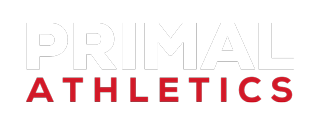PRIMAL ATHETICS
FAQs
FAQs
Everyone has them…
Don’t worry, everyone has questions. With so many myths and false information out in the world today, we understand why. We will continual aim to update this page with real information for you. If you have a question we haven’t addressed, send it our way and we will be happy to answer it.
Personal trainers are trained to design customized workout plans and provide nutritional guidance tailored to your weight loss goals. They can create a structured exercise program that includes a combination of cardiovascular exercises, strength training, and flexibility work to maximize calorie burn and fat loss. Additionally, they offer ongoing support, motivation, and accountability, ensuring you stay on track and make sustainable lifestyle changes that promote weight loss.
Personal trainers take a holistic approach to weight loss, considering factors such as your current fitness level, medical history, and personal preferences. They can identify potential barriers to weight loss and develop strategies to overcome them. By providing education on nutrition, helping you set realistic goals, and monitoring your progress, they empower you with the knowledge and skills needed to achieve long-term weight loss success. Their guidance ensures that your efforts are focused and effective, leading to sustainable results.
Personal trainers prioritize safety and proper technique during workouts. They conduct thorough assessments to understand your fitness level and any limitations or medical conditions you may have. Based on this assessment, they design a personalized exercise program that gradually progresses at a pace suitable for you. They monitor your form and provide corrections as needed to prevent injuries and ensure exercises are performed correctly. This individualized approach not only reduces the risk of injury but also enhances the effectiveness of your workouts, allowing you to achieve weight loss goals safely and efficiently.
Carbohydrates are one of the three essential macronutrients the body requires as it does not produce them on it’s own. Carbohydrates are considered a primary fuel source, vital to maintaining blood glucose levels, and assist with performance and appetite control. Complex Carbohydrates should be eaten more than simple Carbohydrates i.e. grains over white sugar. For athletes and bodybuilders, controlled carb reduction can be used with an energy efficient body to reduce weight.
The body naturally produces Creatine and thus it is used as an energy source. When Creatine enters muscle cells, it also pulls with it water which causes the muscle cell to become bigger. Bigger cells are considered healthy and, in people with lots of muscle, can actually make the muscle appear bigger. Most people combine a Creatine supplement with carbs and other bulking food which can cause subcutaneous water gain.
Personal training offers numerous benefits that can significantly enhance your fitness journey. A personal trainer provides personalized workout plans tailored to your goals, ensures proper form to prevent injuries, offers motivation and accountability, and adjusts your program as you progress. This personalized guidance maximizes your time at the gym, helping you achieve results more effectively than working out alone.
Personal trainers are experts in fitness who understand how to create effective workouts based on your individual needs. They can optimize your time at the gym by focusing on exercises that target your specific goals, whether it's weight loss, muscle gain, improved endurance, or overall fitness. Their expertise ensures that you're performing exercises correctly and efficiently, minimizing wasted effort and reducing the risk of injury. This personalized approach accelerates progress and helps you achieve your goals in a structured and sustainable manner.
Absolutely! Personal training is especially beneficial for beginners who may feel unsure about where to start or intimidated by gym equipment. A personal trainer will begin by assessing your current fitness level, discussing your goals, and gradually introducing you to exercises that are appropriate for your abilities. They provide guidance on proper technique, create a supportive environment, and motivate you to stay consistent. Over time, you'll gain confidence, knowledge, and the skills needed to navigate the gym independently, setting a strong foundation for long-term fitness success.

